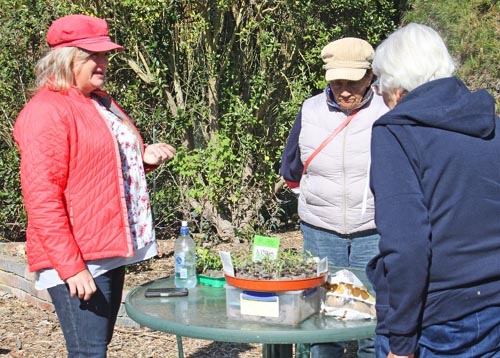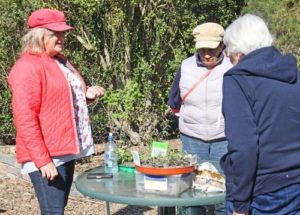
If you missed the recent presentation by Wendy Kentjens on fungi, here are a few tips from the well attended workshop that took place in April. While we have useful fungi such as mushrooms and yeasts, Wendy devoted most of her talk to dealing with problem fungi.
Here are the suggested steps:
- Provide a non-conducive environment: Do not irrigate at night, allow good airflow through plants and trees, avoid soil compaction.
- Reduce susceptibility of host plant: Provide sufficient light/shade, give enough food, give just enough water (not too much).
- Minimise spread: Have diversity of plants, fungi-resistant plants, avoid overhead irrigation, remove diseased parts, unhealthy leaves.
- Break life cycle using crop rotation.
- Have a suppressive soil: Soil with rich microbial diversity, no-dig gardening, use of compost and manure.
Types of problem fungi frequently encountered by gardeners include powdery mildew (grapes and fruit trees), rust, anthracene (tomatoes) and botrytis rot (strawberries and grapes).

Ngā mihi nui Wendy.

Get in Touch with Ruth Wood,
Lincoln Community Gardens Coordinator
021 074 3905


